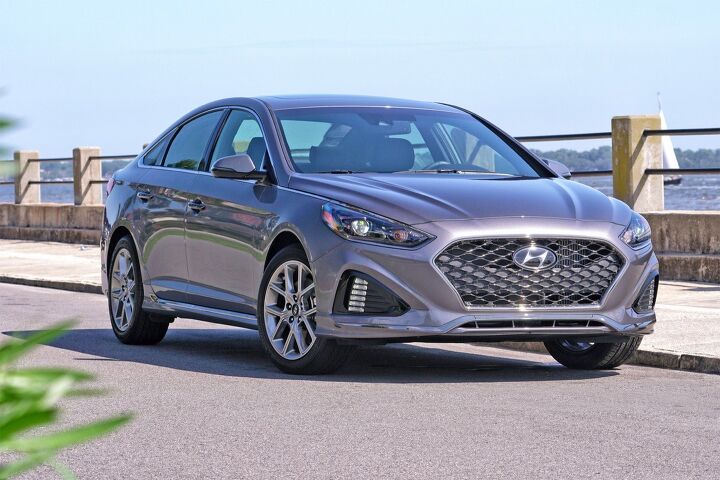Hope for Hyundai? China Agrees to Ignore South Korea's Missiles

When it comes to the positively frosty relationship between China and South Korea, this is the part of the movie where the two countries bump into each other at the bookstore and realize they should work out their troubles instead of giving each other the silent treatment. You know, for the kids.
For South Korea, China’s decision to warm up the relationship — which soured after the jittery country placed U.S.-supplied defensive missiles on its soil — is the best news its auto manufacturing sector has heard in ages. Perhaps soon it won’t be frowned upon to own a Hyundai or Kia in Beijing.
As Reuters reported yesterday, both countries have agreed to patch things up and move past last year’s decision to install THAAD anti-missile batteries in South Korea. The mobile missile launchers are designed as an extra level of protection against possible aggression from the nuclear-armed North Korea.
China, however, found the missiles to be particularly provocative. Not because China remains a tepid ally of North Korea’s authoritarian regime, but because it felt THAAD’s powerful radars could peek into its airspace. In response, South Korea’s tourism industry, as well as its manufacturing and entertainment industries, took a heavy hit in China.
Owning or buying a Korean car quickly became something to avoid. With a market as large as China’s, that spelled extra turmoil during a troubled time at Hyundai Motor Company. The company’s U.S. sales have tapered off, leaving the automaker scrambling to build new crossovers in an attempt to rekindle the fire.
According to The Korea Herald, Chinese Hyundai sales have fallen 37.2 percent over the first nine months of 2017. Kia sales fell 40.0 percent. That’s a big chunk taken out of the automaker’s global volume.
“We see a chance to recover sales on a gradual basis if the official ‘normalization of ties’ leads to easing of anti-South Korean sentiment,” a Hyundai official told the publication. “In the case of the automobile market, the Chinese government actually did not block consumption of South Korean cars, unlike in the tourism industry.”
For Ssangyong Motor Company, the move could mean its shelved joint Chinese plant plans might get a rethink. You’ll recall Ssangyong began looking at entering the American market after groundwork for a China plant went nowhere. (After last week’s board of directors vote, there’s no still word on whether we’ll see a new brand sold on this side of the Pacific.)
“We will have to wait and see how our partner will react to the thawing relations between Seoul and Beijing,” a Ssangyong official told The Korea Herald.
[Image: Hyundai]

More by Steph Willems
Latest Car Reviews
Read moreLatest Product Reviews
Read moreRecent Comments
- Varezhka Maybe the volume was not big enough to really matter anyways, but losing a “passenger car” for a mostly “light truck” line-up should help Subaru with their CAFE numbers too.
- Varezhka For this category my car of choice would be the CX-50. But between the two cars listed I’d select the RAV4 over CR-V. I’ve always preferred NA over small turbos and for hybrids THS’ longer history shows in its refinement.
- AZFelix I would suggest a variation on the 'fcuk, marry, kill' game using 'track, buy, lease' with three similar automotive selections.
- Formula m For the gas versions I like the Honda CRV. Haven’t driven the hybrids yet.
- SCE to AUX All that lift makes for an easy rollover of your $70k truck.


































Comments
Join the conversation
I understand your concern, but Hyundai does have a good portion of their supply chain and mfg in the US. Elantras are made in AL as well as KR. Not sure about the GT though. https://www.hyundaiusa.com/new-thinking/built-in-usa.aspx
Let’s suppose Kim decided to act on his fantasy of conquering South Korea, and the USAF lost all the keys to the bombers and didn’t vaporize Pyongyang. The Norks would triumphantly enter the Hyundai offices and find.. nothing. The bank accounts would contain nothing, the contents having been wired out of the country days before. Same with all the intellectual property, having been FTPd to Hyundai’s new world headquarters somewhere in the USA where they had just chartered themselves as a US corporation. They’d be just down the road from the LG and Samsung world HQs. Realtors would be working feverishly to find homes for all the Korean employees that just arrived as refugees. Various US states would be in a bidding war to entice H/K to locate new assembly plants while the Norks try to figure out how to reverse engineer and build cars in the stripped facilities that they could only sell to China.